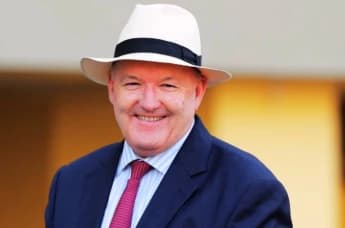Jayson Werth's Journey: From Baseball Star to Racing Victory

"From the baseball diamond to the racetrack, Jayson Werth's journey showcases the resilience and determination of an athlete who refuses to be defined by setbacks, finding redemption and purpose in the thrilling world of horse racing."
In the realm of professional sports, few competitors exhibit the same level of determination as Jayson Werth, both during his time on the baseball field and in his recent venture into horse racing. Over a remarkable decade-long career in Major League Baseball, filled with both achievements and challenges, Werth found a renewed sense of purpose and competitive spirit in horse racing—a sport that has consistently drawn the interest of ambitious athletes.
Werth’s foray into the world of horse racing was not characterized by immediate success. Similar to many athletes who shift from one intense environment to another, he encountered numerous challenges and skepticism along the way. However, when his colt, Dornoch, crossed the finish line at the Belmont Stakes in a stunning upset that caught everyone off guard, it marked the peak of years of dedication—both his and that of the horse. As Dornoch raced ahead of the competition, Werth’s emotions overflowed. He leaped in joy, shouted with excitement, and embraced his family, finally allowing tears that had been building up for years to flow.
This victory represented more than just a success for Werth as a horse owner—it marked the culmination of a personal journey that reflected his own challenges in the world of professional sports. Dornoch had faced criticism following a disappointing performance at the Kentucky Derby, similar to how Werth had been overlooked during his baseball career. However, just as Werth held steadfast in his belief in his own capabilities, he also maintained his faith in his horse. When Dornoch crossed into the winner’s circle, it became a moment of true validation for both the man and the animal.
To truly appreciate the significance of Werth's victory, one must reflect on the pivotal moments that shaped his baseball career. In the early 2000s, Werth was considered a promising prospect, but his career took a sudden downturn due to a severe wrist injury sustained during spring training in 2005. A fastball fractured his wrist, and despite his determination to play through the pain, he was forced to miss the entire 2006 season. As one of baseball's emerging talents, his future in the sport became uncertain.
In December 2006, Werth received a life-changing phone call: he was released by the Los Angeles Dodgers. After years of hopeful anticipation, he found himself cast aside, regarded as an afterthought by the organization that had once placed great faith in his abilities. While many players have faced the harsh unpredictability of professional sports, this moment was particularly devastating for Werth. He spent countless late hours contemplating his future, filled with uncertainty. The once-promising path ahead now appeared fragile and unclear.
"I was among the top rookies in baseball in 2004, hitting two home runs during the postseason," Werth reflected. "Everything appeared so bright—until it wasn’t. You perform well, get injured, and then, out of nowhere, you're left without a job. So, what do you do in that situation?"
Soon after, Werth, unfazed by the obstacles he faced, made a comeback in the major leagues, reviving his career with the Philadelphia Phillies and eventually clinching a World Series title. This ability to bounce back became a hallmark of his baseball journey. However, following his retirement, Werth looked for new challenges—and he found a fitting pursuit in horse racing.
Always captivated by the sport, Werth decided to dive into horse ownership, beginning with Dornoch. Despite a difficult performance at the Kentucky Derby, Werth recognized the horse's potential. He did not allow that initial letdown to obscure his perspective. Understanding the sting of being overlooked, Werth connected deeply with the horse. In many ways, Dornoch's path reflected his own—overcoming challenges, defying expectations, and ultimately achieving success.
In horse racing, similar to baseball, nothing is guaranteed; what remains is the excitement of competition and the determination to succeed. Werth's triumph at the Belmont Stakes represented more than just a victory; it symbolized the fulfillment of a long-held aspiration—an affirmation of his steadfast belief in himself and the horses he nurtures. Much like his baseball career, which was founded on dedication and resilience, his enthusiasm for horse racing is equally driven by those same qualities.
Jayson Werth's win at the Belmont Stakes will stand as a significant moment of redemption, yet it is not the concluding chapter of his journey after baseball. Through horse racing, he has discovered a fresh avenue to channel his competitive drive—a realm where the stakes are elevated, and success is achieved through perseverance and hard work. In many respects, Dornoch's triumph embodies Werth's own resilience as much as it reflects the horse's achievements. The similarities are evident: while Werth refused to let his baseball setbacks define him, Dornoch emerged from obscurity to grasp his moment of triumph.
For Werth, the excitement of competition remains timeless—be it on the baseball diamond or in the winner's circle. Standing alongside his family, with tears of joy in his eyes, it’s clear that he has discovered a renewed sense of purpose in the realm of horse racing—a purpose that may even rival the pinnacle of his remarkable baseball journey.






